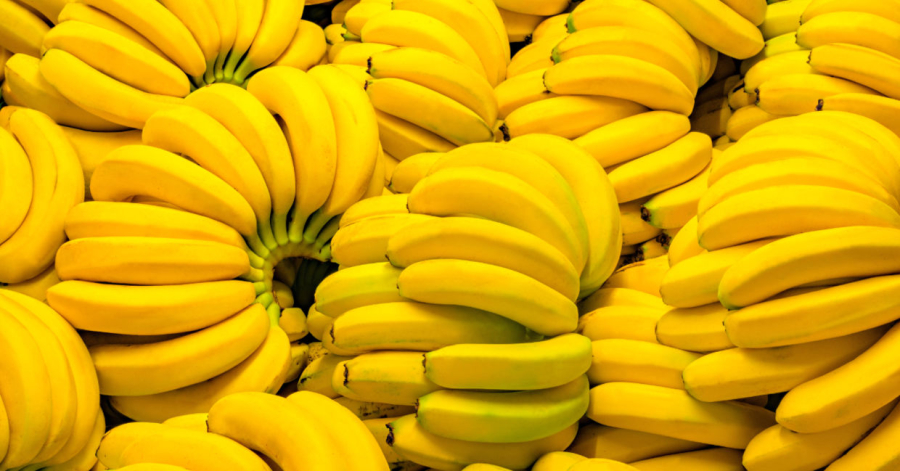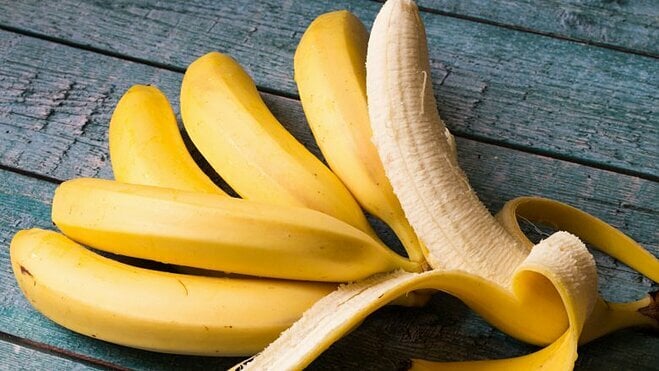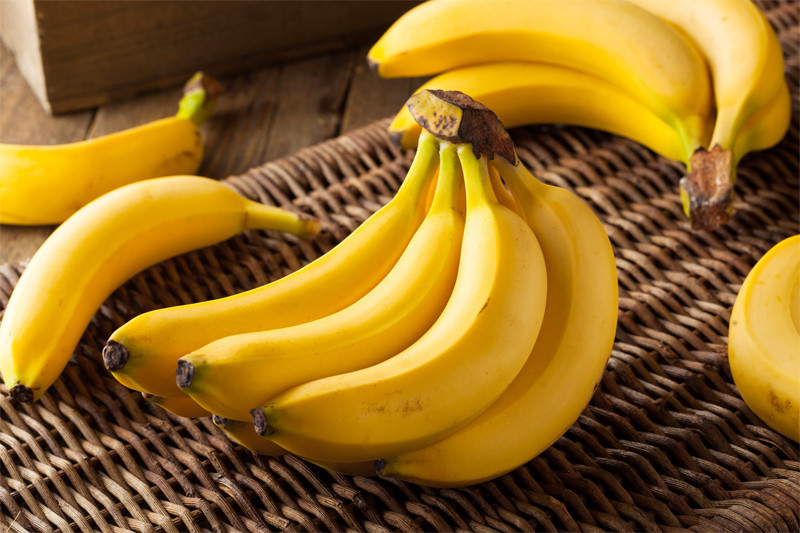Avoid Eating Bananas on an Empty Stomach
While bananas are a convenient and nutritious snack, it’s important to avoid consuming them on an empty stomach, according to traditional Vietnamese medicine expert Bui Dac Sang from the Vietnam Academy of Science and Technology and the Hanoi Oriental Medicine Association. This is because bananas are rich in nutrients, including the essential minerals magnesium and potassium, which can disrupt the cardiovascular system and cause discomfort and bloating if consumed before a meal.
Therefore, it’s best to eat bananas after a meal, never on an empty stomach. Additionally, avoid eating ripe bananas in the morning or when you need to focus on work, as the serotonin in bananas can make you feel sleepy and impact your productivity. Instead, enjoy bananas during lunch or dinner to maintain your work efficiency.

Many people have a habit of consuming bananas at any time of the day, considering it a nutritious food.
Don’t Eat Bananas with Fatty Foods
Bananas are a fiber-rich fruit, but when combined with fatty foods, they can cause unwanted digestive issues. The fiber in bananas slows down digestion, and when paired with fatty dishes, consumers may experience symptoms like bloating, indigestion, nausea, and even diarrhea in some cases.
Fatty foods tend to prolong the time food stays in the stomach, giving the fiber in bananas more time to ferment. This combination creates a challenging-to-digest mix, increasing discomfort and unease in the digestive system. To maintain digestive health, avoid eating bananas with oily and greasy meals.
Avoid Combining Bananas with Sweet Treats
Sweet treats like cakes, bread, and baked goods often contain processed carbohydrates, which take longer to digest. In contrast, bananas aid digestion. In Indian cuisine, it is believed that combining two foods with opposing characteristics can lead to digestive imbalances.
Similarly, consuming bananas with carbonated soft drinks can cause a bloated feeling and discomfort. To prevent digestive issues, consider avoiding pairing bananas with sugary treats.

To avoid digestive issues, consider avoiding pairing bananas with sugary treats.
Avoid Eating Bananas with Sweet Potatoes and Taro
It is not recommended to eat bananas with certain types of potatoes. Specifically, combining bananas with regular potatoes can lead to the formation of toxins, while eating bananas with sweet potatoes or taro can cause stomach pain and bloating. Therefore, to maintain digestive health, carefully consider combining these foods.
Don’t Eat Ripe Bananas with Protein-Rich Foods
Ripe bananas are quickly digested, while protein-rich foods like eggs or meat are digested more slowly. When eaten together, this can lead to fermentation and gas production in the digestive tract.
This combination results in longer digestion time due to the high fiber content of bananas and the large amount of protein in meat. Consequently, the consumer may experience bloating, indigestion, or flatulence.
According to Indian medical beliefs, efficient digestion is crucial for maintaining good health, as it ensures proper nutrient absorption and metabolism. On the other hand, poor digestion can lead to a buildup of toxins and undigested food in the intestines, causing fatigue, weakened immunity, and contributing to various health issues in the future.

Ripe bananas are quickly digested, while eggs and meat take longer.
Groups Who Should Limit Ripe Banana Consumption
- People with stomach aches: Those with a history of stomach aches should avoid eating bananas, especially unripe ones. For other types of bananas, only eat them after a full meal. At this point, bananas can help protect and neutralize stomach acids.
- People with tooth decay: Bananas are high in sugar, which can contribute to tooth decay and enamel erosion if consumed in excess.
- Overweight or obese individuals: Due to their high sugar and calorie content, eating more than two bananas can amount to consuming over 300 calories at once. Therefore, those aiming to lose weight should limit their banana intake to a maximum of two bananas per day if no other fruit is consumed.
- Diabetics: People with diabetes should refrain from eating bananas, as they can increase blood sugar levels.
- People with kidney disease: Bananas contain high levels of potassium, which can be detrimental to those with kidney disease. Excessive banana consumption can overwork the kidneys and potentially cause harm.
- People with headaches: Bananas may contain compounds that dilate blood vessels, especially overripe bananas. When experiencing a headache, it’s best to avoid bananas, as they may prolong the pain.





































